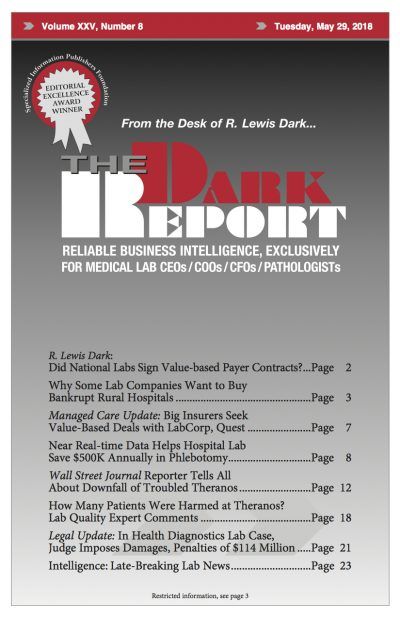LAST WEEK, A FEDERAL JUDGE in South Carolina issued an order imposing civil damages and penalties of more than $114 million on Tonya Mallory, the former CEO of Health Diagnostic Laboratory, in Richmond, Va., and two owners of the lab’s marketing partner, BlueWave Healthcare Consultants Inc. The damages and penalties were imposed on the defendants …
In HDL Case, Judge Imposes Damages, Penalties of $114 Million Read More »
To access this post, you must purchase The Dark Report.


